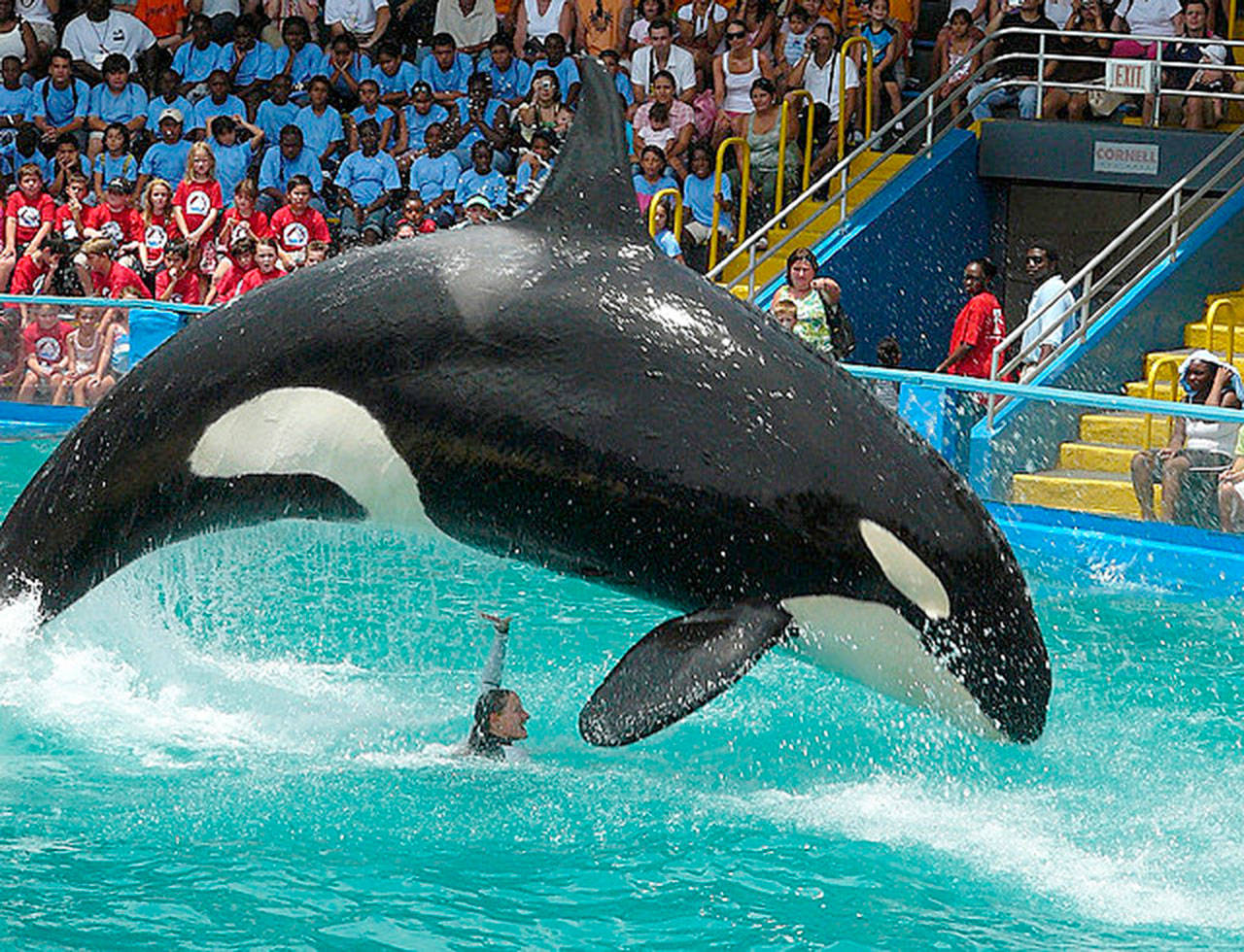In a bid to free the last orca caught in Penn Cove waters, the Lummi Nation spoke of treaty rights and the cultural significance of killer whales at a press conference Tuesday in Miami.
Tribal leaders joined Philip Levine, the former Miami mayor now running for Florida governor, Langley’s Orca Network and others to advocate for the release of the killer whale Tokitae from the Miami Seaquarium.
“She was ruthlessly taken from her family that lives in our traditional territory,” Jewell James of the Lummi Nation said in a press statement. “She is not an ‘ambassador.’ She is a captive and must be reunited with her family. It is our xa xalh xechnging [sacred obligation] to do this.”
Tokitae is the only survivor of whale wrangling from the 1970s that legally took place in Northwest waters until federal laws prohibited their capture. Tokitae has outlived all the captured orcas that were sold to various aquariums. The 21-foot orca performs two shows a day, seven days a week, and is known by her stage name Lolita. She lives in a pool with Pacific white-sided dolphins.
The Lummi Nation’s originally announced its renewed support in August when visiting Coupeville during annual ceremonial observations of the capture of the orcas.
As mayor, Levine, and the Miami Beach City Council, unanimously passed a resolution urging the Seaquarium to retire Lolita based on the recommendations of a long-standing retirement plan created by the Orca Network.
The plan involves transferring Lolita to a seaside sanctuary near Orcas Island and an ancient Lummi village, teaching her to fend for herself, and eventually releasing her back into the wild.
Some marine biologists are skeptical of whether the whale would even survive the trip or be able to adapt to her natural environment. However, Howard Garrett, co-founder, director and president of the board at Orca Network, who helped devise Tokitae’s retirement plan, remains firm in his belief the whale can be safely returned to her home waters.
“Lolita’s close kin will be nearby and she’ll be offered ample human care and companionship indefinitely if she so chooses,” Garrett said.
Miami Seaquarium officials, however, cited the skeptics when it once again announced it had no intention of releasing the whale, which it does during yearly protests.
“Miami Seaquarium has the utmost respect for the Lummi Nation,” Eric A. Eimstad, general manager, said in a statement. “However, (they) are not marine mammal experts and are misguided when they offer a proposal that is not in the best interest of Lolita the orca.”
Aquarium officials referenced a November article by The Miami Herald that interviewed dozens of experts about the whale’s captivity and release efforts, quoting:
“You have to face the fact that this is not a theoretical animal,” said Douglas Wartzok, professor emeritus and professor of biology at Florida International University, who has a PhD in biophysics “This is one real animal that I think people on both sides of the conversation have to step back and say, ‘What’s best for this particular animal at this particular stage of her life?’
“It’s not an easy answer, [but] my opinion is it’s probably better to leave the animal where she has lived for the past 47 years.”
At the press conference, Lummi officials explained that the killer whale is revered, considered their eldest relation and that they have a sacred obligation to protect it.
The Lummi Tribe and the Southern Resident orcas both rely on the Salish Sea and salmon for a main source of food.
The press conference also included the preview of a full-length documentary, Bring Tokitae Home, that tells the story of Tokitae and her spiritual connection to the tribe.
Whidbey News-Times is a sister paper of the San Juan Journal.



